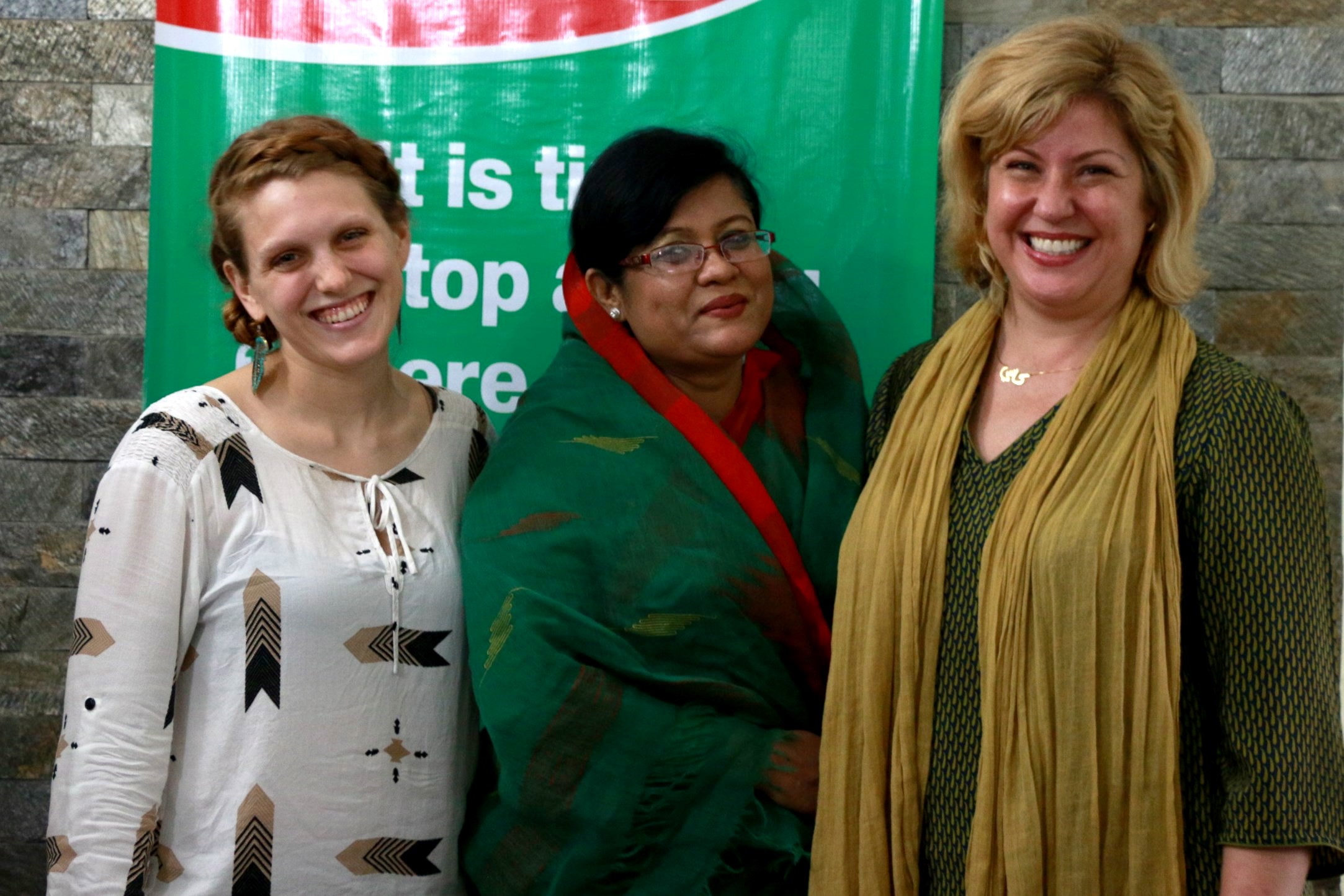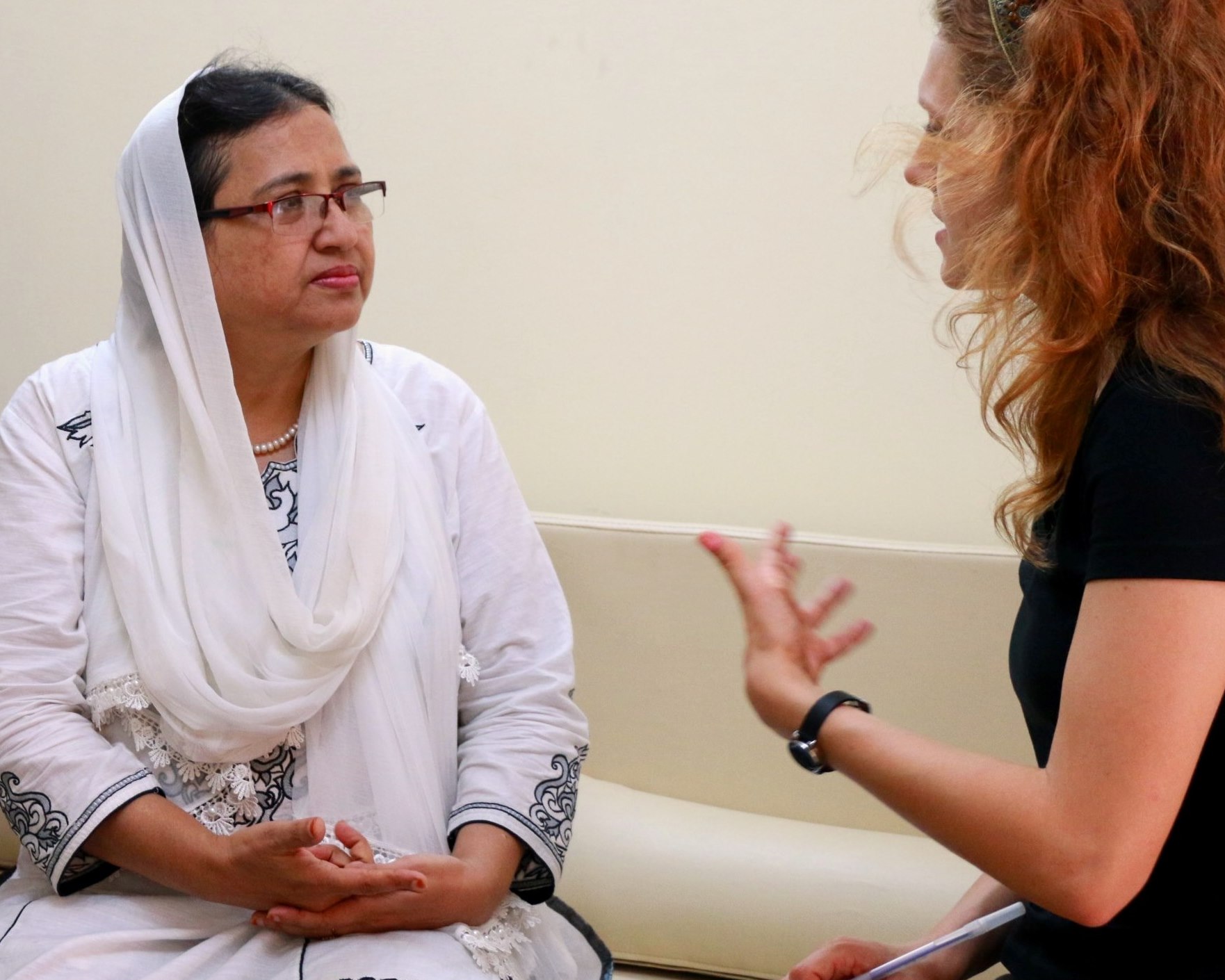As a refresher, I am spending ten weeks in Dhaka, Bangladesh working on a couple of projects for my summer internship. A couple days of the week I work at BLAST as a legal intern and I spend another couple of days working with a US-based attorney doing research on domestic worker’s rights or people who are employed in the home, such as cleaners and cooks.
Fortunately while over here, an amazing opportunity popped up for me to work with Democracy International (DI). DI “provides analytical services, technical assistance, and project implementation for democracy and governance programs worldwide… Unique among consulting firms, DI’s core capabilities and principal focus are in international democracy and governance (DG) assistance.” They are currently in Bangladesh with funding from USAID to work with political parties to decrease corruption and increase democracy.
I specifically get to work with Norir Joy Shobar Joy, a “targeted campaign to expand and strengthen women’s political leadership within political parties and in elected positions.” I have been asked to develop best practices or an advocacy brief on ways political parties and women can improve women’s effective leadership. In order to obtain these best practices, I will be interviewing 20 female leaders who already hold positions in political parties and government. Based on their collective experience and wisdom, I will draft a document they can use to advocate for change.
So far I have been able to interview amazing grassroots leaders, Members of Parliament, and political party leaders. One of my favorites, stopped corrupt officials from stealing money from dam repairs, ultimately saving her village’s farms and fisheries. I got to speak with the only female mayor in Bangladesh and hear how she navigates a tough political climate to serve her people.
It has been truly inspiring. Every interview I ask women to identify obstacles to women’s effective participation and also solutions to those barriers. I ask what political parties could do and what other women can do to facilitate women’s active leadership. Then at the end I always ask, “Despite all these challenges, how have you become a successful leader?”
Almost every single woman said to make the politics about service to the people: “You have to be in the community and with the people.” “You have to hear the people’s needs and bring them back and fight for them.” “I am always going to funerals and weddings so that my people know that I care.” “People have to trust you and know that you are there to serve them.” One woman even said, “I am not good at being a politician, but that’s ok because I am good for my people.”

Bangladesh, like many other countries, is plagued with corruption. Government officials are usually out for power and wealth. Very rarely is there an emphasis on service. Yet, all the women I spoke with were determined to represent the people, provide education to girls, and work to make Bangladesh a great nation.
Though so much of their experience as women in government and politics is incredibly frustrating and defeating, they keep going. One of the women, who must be in her late sixties, is currently earning a PHD. Her dissertation: women’s role in Bangladeshi politics. I walk away from these interviews inspired. In all that these women face, they continue to keep pushing forward. I am truly grateful for this opportunity and have been able to learn so much as a researcher, an advocate, and an aspiring change-maker.
Questions for Amie? Email law-admissions [at] luc [dot] edu with the subject “Ask Amie” and she will make sure to answer them.

